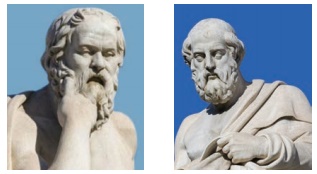Social Justice - Socio-Cultural Equality | 11th Political Science : Chapter 12 : Social Justice
Chapter: 11th Political Science : Chapter 12 : Social Justice
Socio-Cultural Equality
Socio-Cultural Equality
In the diversified society, people from different
groups may practice their cultural values, habitual factors and improve
individual talents. For this to happen, equality in society is an essential
criterion. Every individual should be assured of fair opportunity in the society.
To a large extent, unequal atmosphere should be wiped out for attaining liberal
society.
To put it in a nutshell, actions must be taken at
least to reduce the unequal circumstances. For instance, a good healthcare,
education, nutritious food stuffs, minimum emoluments are the basic needs to be
provided to all without discrimination. Without these basic facilities, we may
not call a society as egalitarian one.
What are the main issues of our Nation?
Beliefs and practices on the basis of caste and
religion are dastardly obstacles. In many parts of India, the status of women
is at lower level - education, employment, right to property are refused to
women. If this situation extends and established as our culture, a major
catastrophe may not be averted in India. If inequality and discrimination is
stamped as our cultural value, the path of equality may be at cross roads and
cannot be attained at all.
Economic Equality
Economic equality can be identified by individual’s
income and the value of property, he possess in a society. Otherwise, the gap
between rich people community and poor may indicate the status of economic
equality. Further, by calculating number of people under poverty line, we may
draw strong inferences and resolutions. This kind of identification is
widespread among all the nations. But certain discriminations on the basis of
culture and historical cum habitual practices, may create precarious issues in
the concerned society. Radical reformers during different phases of history,
has made wide awareness about these untoward and unethical happenings to the
people.
"Humans respected on the basis of caste which
he belongs to, is barbarian and anti-human thinking", exclaimed
E.V.Ramaswamy alias Periyar in Tamilnadu. He out- rightly condemned the cultural
practices, habitual follow-ups and other so called values which refutes
equality in all its aspects. Periyar also was against “Patriarchal Chauvinism”
which subjugated women all along the history.
That society is best which got rid of caste,
religion, gender and suppressive habitual practices”, lamented Periyar. Modern
society cannot be sanctified by the people who cling towards the language and
discriminatory cultural practices. Apart from Periyar, various saints, seers
and philosophers took strenuous efforts to have egalitarian society. People who
enjoyed all kind of privileges on the basis of dynasty, birth and descent so
far has to come to end. Determining an individual’s capacity on accordance with
the birth is the primary and precarious feature of the unequal society.
All are equal and individual’s capacity, if decided
on the basis of merit, is the first step towards equal society. So far, number
of modern nations refused to provide voting rights for the poor people. There
are nations which restricts women education and public offices in the 21st
century.
In India, lower strata people are permitted to work
only in the clerical and other benefit- less offices. They were not permitted
to occupy higher positions, because of their caste identity. Individuals and
organization for the past centuries made onerous efforts to curb out in equal
menace from the society.
There some human communities which needs special attention, since they
were totally ignored and exploited by the upper strata people.
Truthful equality can be identified only in those rare occasions.
Injustices unleashed in the past must be identified to know about what real or
fair equality is.
Reservation policy is a good initiative from the
part of government in delivering equal justice. People, who were denied of
education and employment opportunities so far, were provided with reservation
for uplifting the condition and status.
Discriminatory practices which were followed for
long time in the historical phases may not be curbed out in a short span.
Expecting the change within one or two generations is an utopian faith, stated
researchers. If reforms happened in short time, it will be a good sign for the
development of the entire nation.
Social Justice and Equality
All civilizations were equipped with the awareness
of their practices. The accepted practices are “Dharma” and the negative is
“Adharma”. Those people who breach these practices will be punished by the
king. Mistakes and related punishments are quite natural in all the countries.

Greek philosopher Plato and his disciples often
debate and discuss about justice and its practices. Discourses and teachings of
Socrates consists of anti-justice people and their impact in the society.
Justice and fairness may do only good things in a society.
If justice do favour for certain individuals, that
may not be considered and called as justice. Justice is all about the entire
development and advancement of a society. Fair justice is applicable to all the
people in a society, claimed Socrates. We may infer from the above said
arguments that reservation is the fair justice provided to the people, who were
hitherto discriminated and exploited.
Proportional Justice
The social justice provided by our Indian Constitution to the depressed
and downtrodden communities is a helping hand for their development and
advancement. But how much and to whom are the major questions?
Caste hierarchy is the primary reason for
inequality in our nation. Hence on the basis of the caste hierarchy, social
justice has to be maintained/must be maintained. In categorization, we are
having backward caste, most backward caste, scheduled caste and scheduled tribe
for whom; governments’ policies are distributed accordingly.
Related Topics